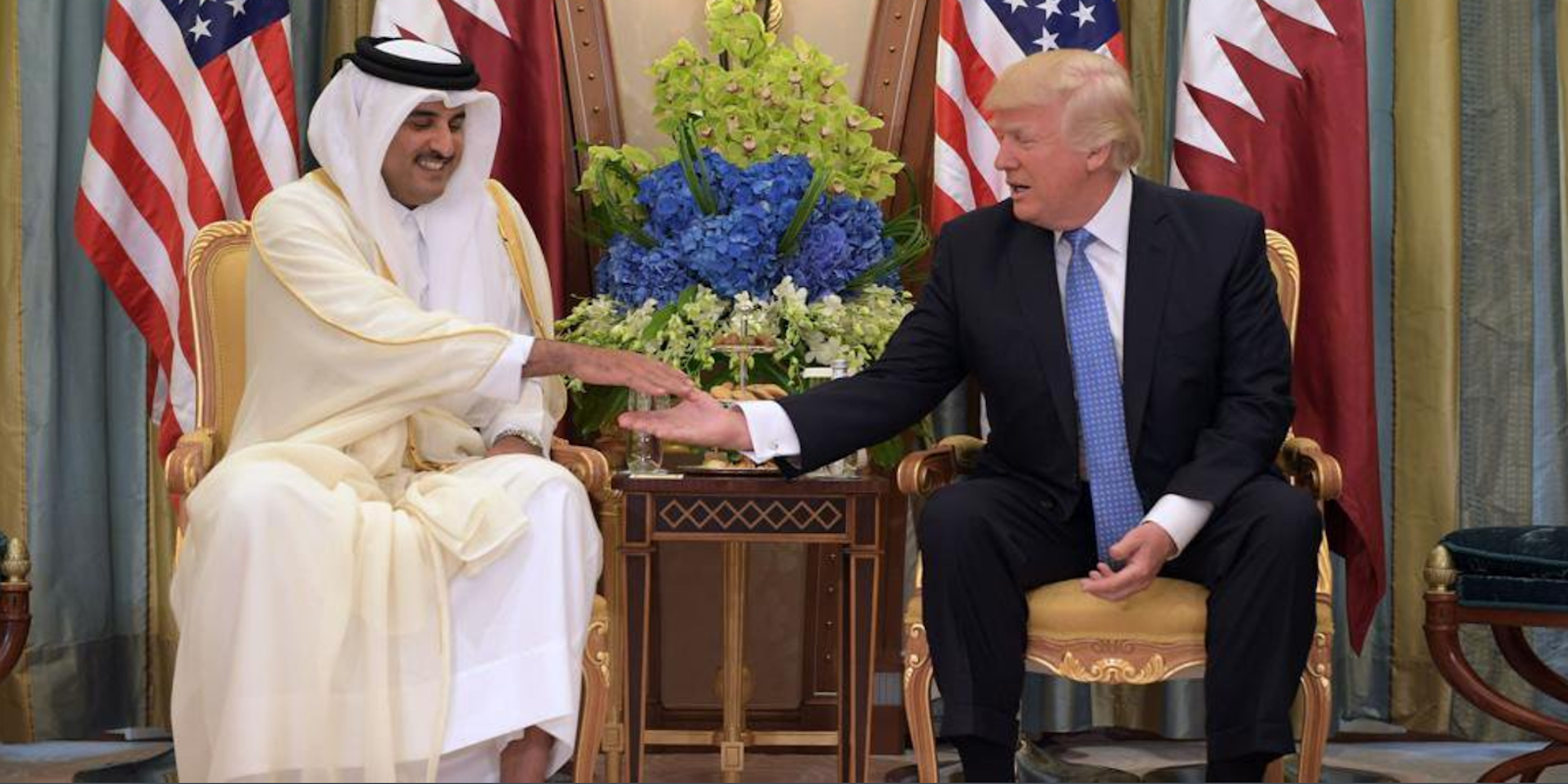The United Arab Emirates reportedly hacked and planted a fake news story to Qatari social media sites and government news outlets in May, causing a diplomatic crisis in the region, according to a report from the Washington Post quoting U.S. intelligence officials.
The fake story posted on the Qatari News Agency’s website attributed false quotes to the country’s emir, Sheikh Tamim Bin Hamad al-Thani, claiming the leader called Iran an “Islamic power” and praised Hamas. The fake reports spread like wildfire across neighboring Gulf states. The agency quickly removed the article and said it had been hacked, but not before four states—Saudi Arabia, the UAE, Bahrain, and Egypt—responded by blocking all Qatari media. The states later imposed trade sanctions and severed diplomatic ties with Doha, a move that Secretary of State Rex Tillerson said could undermine U.S. counterterrorism efforts against the Islamic State.
U.S. officials reportedly discovered last week that UAE ministers held a meeting to discuss their plans for hacking Qatar on May 24, a day before the incident. It is still unclear if the U.S. believes the UAE carried out the hack or hired another country to do it.
UAE officials have already denounced the Washington Post report twice. The country’s foreign minister, Anwar Gargash, said Monday, “The Washington Post story is not true. It is purely wrong. You will see in the next few days the story will die.”
The UAE’s ambassador, Yousef al-Otaiba, told the Post its article was “false.” “The UAE had no role whatsoever in the alleged hacking described in the article,” al-Otaiba said. “What is true is Qatar’s behavior. Funding, supporting, and enabling extremists from the Taliban to Hamas and Qadafi. Inciting violence, encouraging radicalization, and undermining the stability of its neighbors.”
Qatar has been accused in recent years of funding terrorist groups and inciting violence. President Donald Trump sided with Saudi Arabia and the UAE in June, posting a series of tweets backing the idea that Qatar supports extremist organizations.
…extremism, and all reference was pointing to Qatar. Perhaps this will be the beginning of the end to the horror of terrorism!
— Donald J. Trump (@realDonaldTrump) June 6, 2017
U.S. Secretary of State Rex Tillerson, on the other hand, conducted several days of shuttle diplomacy in an attempt to bridge ties between Qatar and its neighbors. The United States’s stance on Qatar has been murky over the years. As the New York Times points out, the State Department called the country a “permissive jurisdiction” for terrorist financing in 2014 but later praised efforts to stop the flow of money to terrorist groups and prevent them from crossing borders.
All of the Persian Gulf countries are part of a U.S.-led coalition against the Islamic State. Qatar houses more than 10,000 U.S. troops at its air base near Doha.


